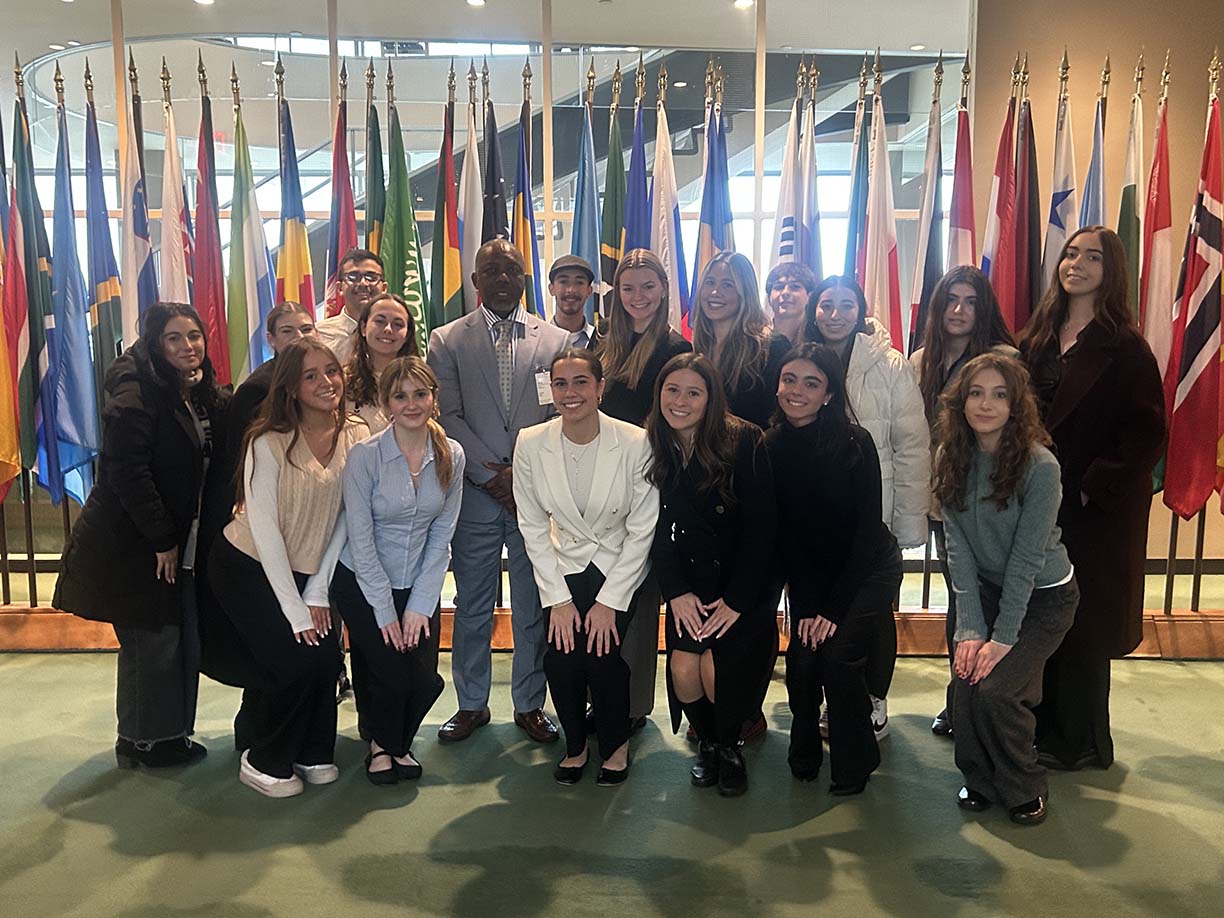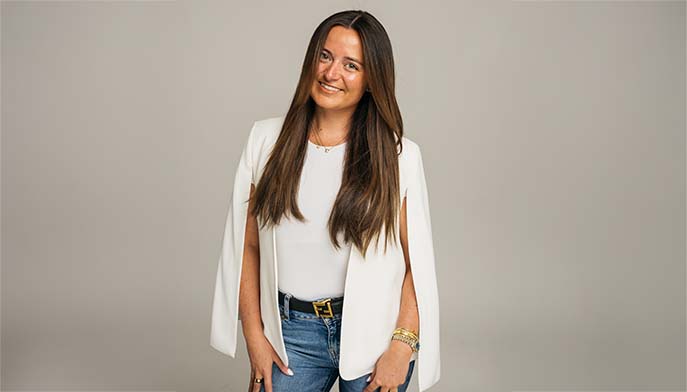Fairfield News
Fairfield News in Your Inbox
Questions for Us?
Contact our Public Relations Team

Assistant professor of politics Lembe Tiky, PhD, and 18 politics and international studies students in the John Charles Meditz College of Arts and Sciences attended the United Nations Academic Conference on Africa, held on Dec. 1–3 in New York City.
I went straight into Covid out of college. I more or less had to learn to leverage social media because all contact with prospective clients was now virtual. I had to learn on the fly.”

Contact our Public Relations Team
